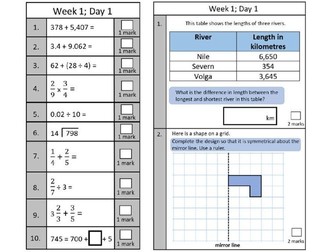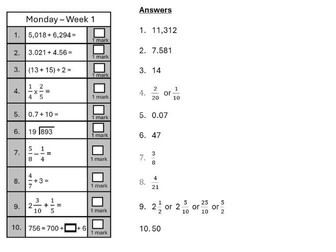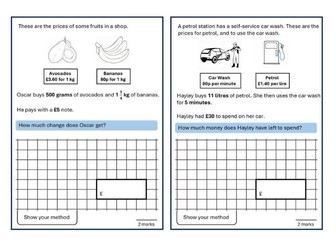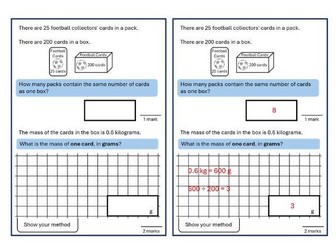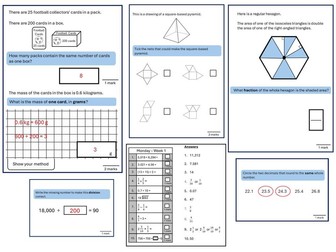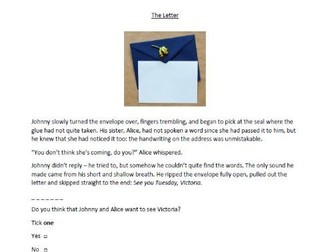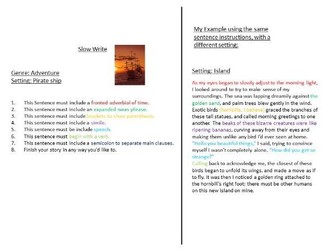Year 6 Arithmetic SATs / KS2 Exam Practice: Daily 10 arithmetic + 2 daily reasoning questions
<p>This resource contains daily arithmetic and reasoning questions for every day in a 6 week half-term. There are 330 individual questions in total. There are 10 arithmetic questions per day (other than Fridays which have 5 questions…I gave my class a little break on Fridays!), and 2 reasoning questions.</p>
<p>The questions have been structured to look like the same format as the actual SATs papers. I have found that there is some psychological advantage to this, as the children get used to not thinking of this as being a scary test, but rather something they are used to seeing on a daily basis.</p>
<p>Over the course of a week, children will encounter virtually all arithmetic question types (I based the questions on the KS2 papers from 2017, 2018 and 2019). They will also focus on 2 areas of reasoning.</p>
<p>The format of the arithmetic questions stays the same for each day of the week: Week 1; Day 1 questions will be the same structure and Week 2; Day 1 questions, and so on. Children can therefore use their previous learning from this resource to aid them. For example, once they know that Question 4 on a ‘Day 1’ is a multiplying fractions question, they can look back at their previous Daily 10s to help them.</p>
<p>The reasoning questions follow the same type for the duration of the week, and I have found that this really helps children to answer these difficult questions. For example, in the first week, the first reasoning question will always involve data in a table, and the second reasoning question will be about reflection.</p>
<p>This resource does take some time to set up to begin with, but I definitely found it worth while! I set up separate maths books that I called ‘Additional Maths Learning’. Though I have them a little longer to begin with, eventually I gave children 15 minutes to complete their 12 questions: 10 minutes for the arithmetic and 5 for the reasoning. I then spent another 15 minutes going through the questions thoroughly, with children marking and correcting their own work. Although allocating 30 minutes daily sounds a lot, I found this to be more valuable in the lead up to SATs than the actual maths lessons! Children definitely enjoyed these questions in the end, as they became proud of competing with themselves and seeing their score go up.</p>
<p>THIS RESOURCE CONTAINS THREE ATTACHMENTS: THE DAILY ARITHMETIC QUESTIONS; THE DAILY REASONING QUESTIONS; AND AN EXAMPLE OF A CHILD’S WORK FROM MY CLASS.</p>
